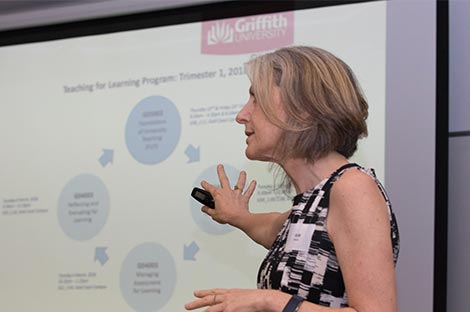Learn about changes to the completion rate requirement
The Australian Government has removed the 50% completion rate requirements for students accessing Commonwealth assistance.
Here you can find out more about this change and how it may affect you.
What has changed?
The Australian Government has removed the completion rate requirement for students receiving Commonwealth assistance, as of 1 January 2024.
You were subject to the completion rate requirement if you commenced study or transferred programs from 1 January 2022.
To remain eligible for Commonwealth assistance (a Commonwealth supported place, HECS-HELP or FEE-HELP), you were required to pass 50% of your courses, after attempting eight courses in a bachelor-level program or higher (or four courses in a program lower than a bachelor program). This requirement is no longer applicable.
The removal of the completion rate requirement is not retrospective. This means the change does not apply to any previous trimesters/teaching periods.

Commonwealth supported place (CSP)
A CSP is a subsidised university place. If you study in a CSP, you will pay a portion of your course fees, referred to as the ‘student contribution’, and the government will pay the rest.
HECS-HELP
HECS-HELP is a government loan that allows eligible students studying in a CSP to defer payment of the student contribution.
FEE-HELP
FEE-HELP is a government loan that allows eligible students studying in a domestic fee-paying place to defer payment of their tuition fees.
What happens now if I was impacted by the completion rate requirement?
If you lost access to Commonwealth assistance due to a low completion rate, your access will be reinstated from January 2024.
Your Commonwealth supported place has been reinstated.
You will be charged the applicable student contribution amount for your enrolled courses.
If you had previously applied for a HECS-HELP loan, you will be able to access the loan to defer payment of your student contribution amount. Please be aware that whichever HECS-HELP payment option (i.e., full deferment or option to make an upfront payment) you originally selected will be reinstated.
If you transferred to a new program due to the low completion rate, you may request an internal transfer to return to your old program. If your application is approved, you will be able to access Commonwealth assistance for that program.
If you discontinued your studies in your program and you were impacted by the low completion rate, you may request readmission into the program. If your application is approved, you will be able to access Commonwealth assistance for that program.
If you had previously applied for a FEE-HELP loan, this payment option will be reinstated.
If you transferred to a new program due to the low completion rate, you may request an internal transfer to return to your old program. If your application is approved, you will be able to access a FEE-HELP loan for that program.
If you discontinued your studies in your program and you were impacted by the low completion rate, you may request readmission into the program. If your application is approved, you will be able to access a FEE-HELP loan for that program.
Further information
Support to succeed
If you're concerned about your academic performance, Griffith has a wide range of support to help you succeed at university.
Get back on track with BOAT
Join our Back On Academic Track (BOAT) program to receive personalised academic support.
Through BOAT, you can identify your goals, develop effective study strategies and build a personalised plan for success.

Learn how to study effectively
The Library’s Study and assignment skills site is packed with resources to help you succeed in your studies, such as tips for:
- making effective notes
- researching and writing assignments
- referencing
- exam preparation.

Connect with a student mentor
Griffith's student mentoring programs provide a relaxed atmosphere to engage with others, break down complex ideas together and develop skills for academic success.
Some programs you might find helpful include:
- Study support, where you can drop in for tips on writing, referencing, researching and assessments
- Peer-Assisted Study Sessions, where you can join group learning sessions for some courses students find particularly challenging.

Talk to your teaching team
You may benefit from talking with your program director, course convenor, lecturers and tutors about your program, the courses and the academic content.
Reading over your course material before class is also great practice, and may spark questions to ask your lecturers and tutors in class.

Explore other support
We know outside factors can affect your ability to study successfully. That's why we have a number of resources available and people you can talk to. For example, if you would like to know more about your study options, reach out to Student Connect. If you are concerned about your mental health and wellbeing, you may like to speak with a counsellor.
Ultimately, we want you to succeed and you can find all our support services at the student support website.
